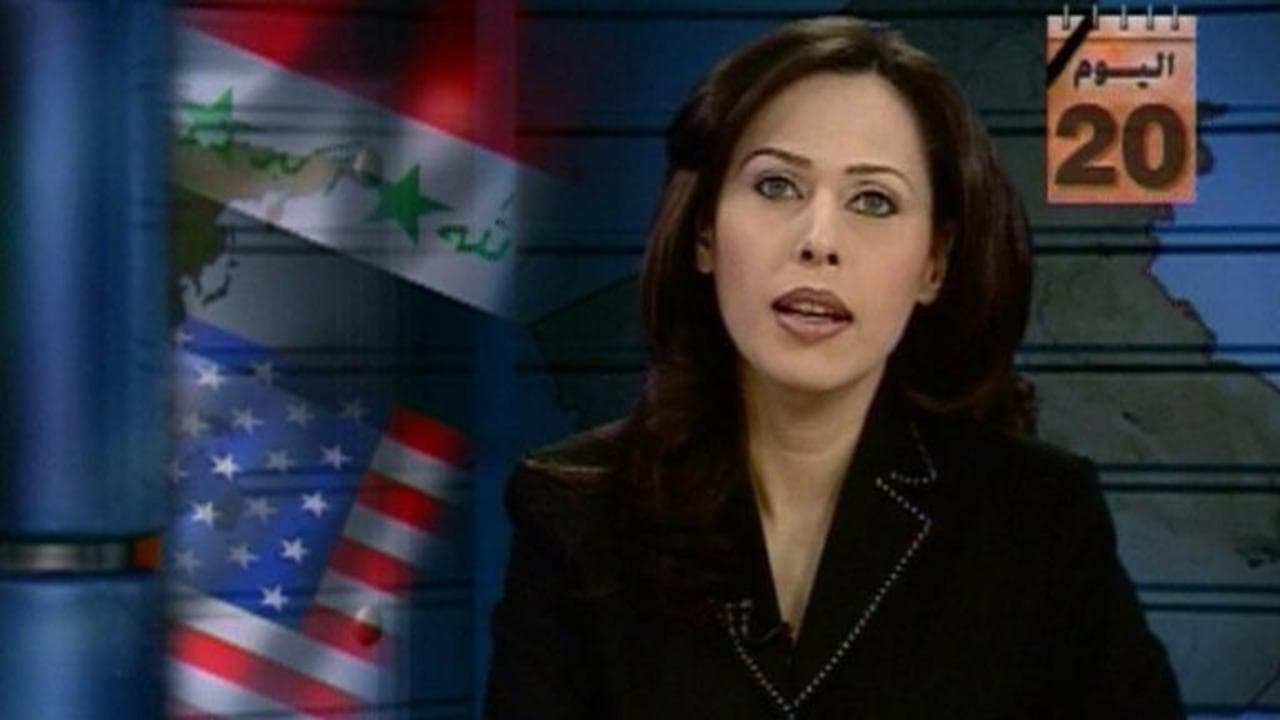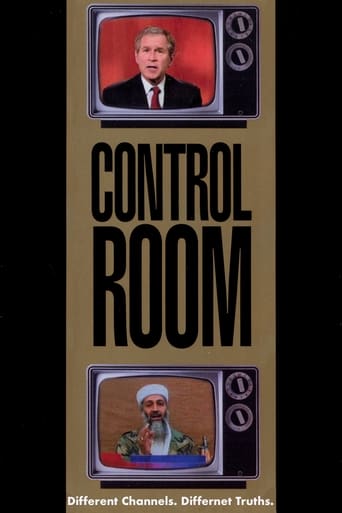

good back-story, and good acting
... View MoreIf you like to be scared, if you like to laugh, and if you like to learn a thing or two at the movies, this absolutely cannot be missed.
... View MoreIt’s not bad or unwatchable but despite the amplitude of the spectacle, the end result is underwhelming.
... View MoreThere's a more than satisfactory amount of boom-boom in the movie's trim running time.
... View MoreIt's March 2003. Al Jazeera is riding a new wave of Arab satellite TV with 40 million viewers. This documentary follows the channel as they cover the second Iraq War up to the Americans arriving in Baghdad after one of their reporters is killed by an American bomb.This has many of the behind-the-scenes stuff expected from this type of movies. Not all of it is that compelling or that surprising. There is obvious bias from all sides. Again that's not surprising and gets tiring after awhile. It is slightly humorous to see the Arab journalists almost dismissing the idea of objectivity and desperately trying to explain away the media stories coming out of Centcom. In the end, it shows the cultural divide and the impossible gap between them.
... View MoreThe earlier reviews of this film were quite rich and detailed. There is little to add.Except it is now more than three and a half years after the historic span depicted in the film. By coincidence, I viewed this for the first time today, the day after Donald Rumsfeld had to fall on his sword. Mr. Rumsfeld's verbatim remarks in press conferences were included in several key sections of Control Room.I think it is particularly worthwhile to view this now, if one is interested in growing insights into how history really unfolds. I don't think the film will look the same now as it did to many who viewed it (and commented on it) two years ago. It struck me as quite extraordinary. See how it strikes you.
... View MoreThis movie introduces us to the star network of the Iraq war, Al Jazeera. Its coverage was our only source of information about the "other" side and this, at numerous occasions during the documentary, seemed to enrage US officials.You can see at once the class, professionalism and quality of Al Jazeera top journalists and compare it with the arrogance and covert racism of their mainstream US networks counterparts (although I'm sure they were not the cream of the crop, but rather preselected from the rightmost end of the spectrum). These scenes interleave with scenes of real people facing real tragedies, caused by this very war. If it wasn't so much tragic, it might be somewhat funny, to see how void of true meaning certain rehearsed answers of CentCom military spokesmen actually are. The director makes every effort to assure us that his documentary is not anti-American in general but targets specific policies. He interviews an American Al Jazeera reporter, who sounds extremely reasonable, CentCom speakers are shown with a positive humane light, multiple assertions that there is trust in the US Constitution and the American people are made and even the Al Jazeera director says that his dream is to move to the States and his kids to get a good American education.
... View MoreWhen watching the news a person will get only what the media wants to give out. The media wants the people of their country to have pride and to do this the media will only show certain events that would make a person feel great about their country. But not every media network feels that way about leaving facts out about the news.Control Room shows the Al Jazeera news and how they want to show the both sides of the U.S., Arabs war. The U.S. on the other hand only wants to show their side of the war and only their's. Al Jazeera really wants to show the world what is happening in this war no matter how upsetting it could be. Al Jazeera believe that the people have the right to know what is going in their world not just some pieces of a story that the U.S. calls news. The movie portrayed the was not as entertainment but facts that a person should know. "Control Room" shows this through Al Jazeera. But in reality "Control Room" can not seem to be equal on both sides. "Control Room" leans more on the Arab side and seem to discard the U.S. The U.S. only shows one side of the war which I know is wrong but to some extent can not help it. The U.S. is not fighting on their own soil which can be hard to get coverage of the war. The U.S. in fact has never fought on their own soil so the Americans have never been on that side and have know idea what citizens feel or how it affects their country. So the media does not think that they should show that side of the coverage. Also an American news reporter would have a harder time trying to interview and Iraqi than and Iraqi interviewing an American. The fact is just that Iraqi's feel more upset about the war which they have the right too because it is affecting them more. "Control Room" tends to leave that part out. "Control Room" tries so hard to show Al Jaeezar and how they try to portray both sides of the war. But gives no credit at all to the U.S. media. The U.S. media is mention but not in a positive way and that is not the whole facts. Maybe the U.S. media does not know better or believes that they are giving the whole truth of the war. The fact that "Control Room" did not mention that makes me feel like they are not showing both sides fairly and is leaning towards Al Jaeezar. And the "Control Room" should lean more to that side because it is the right way to give news but the fact that "Control Room" does not acknowledge the U.S. American media makes it seem wrong for "Control Room" to complain about the U.S. media when "Control Room" just did the same thing. "Control Room needs to realize that the U.S. media will always be different because the U.S. never had experience what other countries have faced in the war. So then of course the media will be different because that is all they know."Control Room did make really good points about the media. It shows how the media wants to just entertain an audience rather than give the facts of the topic. Sandra Silbertein author of "From News To Entertainment" stated that media is really entertain the public rather than informing them of the news worthy events. How the media of the 911 would only take the drama part to make people be more entertain and want people to keep watching the news. "Control Room: portrays this one hundred percent. "Control Room" wanted to inform the people of the truth of how media is different in other countries and that showing the whole truth of a story especially the war is better than just parts of the news to make their country sound great.
... View More